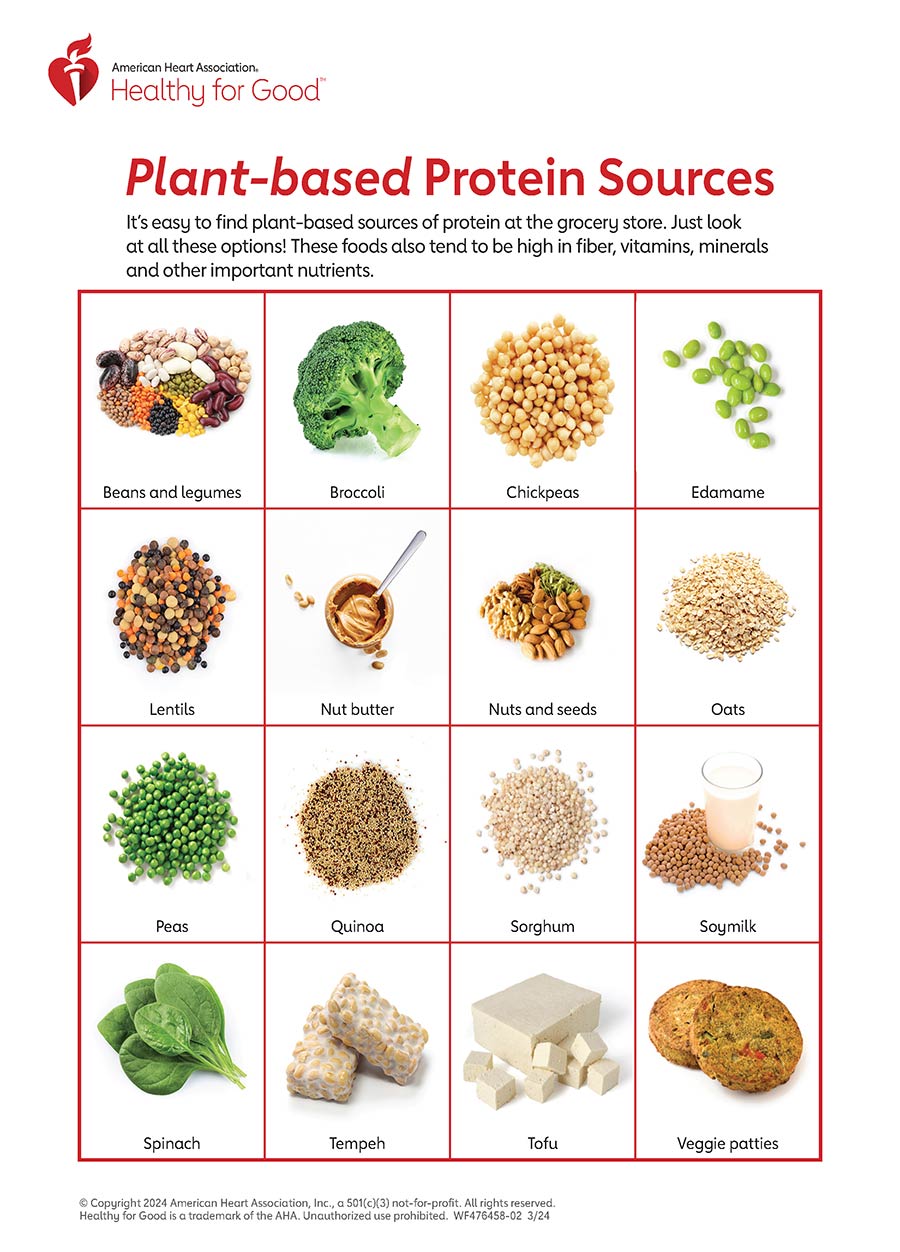Plant Based Beef vs. Traditional Meat: Which Is Better for the Environment?
All Concerning Healthy And Balanced Food: Advantages of Checking Out Plant Based Alternatives
The conversation surrounding plant-based diet plans has obtained considerable interest in the last few years. Many individuals are exploring the possible health and wellness advantages, dietary advantages, and environmental effects connected with these dietary choices. As individuals come to be a lot more familiar with their food's influence on health and sustainability, concerns emerge regarding the usefulness of adopting such a way of life. What particular modifications can one expect, and how might these choices reshape not only individual wellness yet also the planet's future?
Recognizing Plant-Based Diet Plans
Although lots of people connect plant-based diet plans mainly with vegetarianism or veganism, these diets can include a vast array of eating patterns that focus on whole, minimally refined plant foods. Such diet regimens usually consist of fruits, vegetables, whole grains, beans, nuts, and seeds, while eliminating or limiting animal items. This flexibility permits individuals to tailor their dietary choices according to nutritional requirements and personal choices. Some may adopt a mainly plant-based diet regimen while still sometimes consuming meat or dairy products, commonly referred to as a flexitarian strategy. The focus continues to be on incorporating more plant foods, which can result in a diverse variety of flavors and meals. Comprehending these numerous analyses of plant-based eating is necessary for appreciating its accessibility and allure in contemporary food culture.
Health Perks of Plant-Based Foods
The wellness benefits of plant-based foods are significant, using a nutrient density benefit that supports general wellness. Study indicates that these foods can boost heart wellness and play a necessary role in reliable weight management. By integrating a lot more plant-based choices, individuals might improve their dietary choices and advertise long-lasting health and wellness.
Nutrient Density Benefit
Nutrient density plays a crucial function in the health and wellness benefits of plant-based foods, making them an engaging choice for those seeking a balanced diet plan. Plant-based foods, such as fruits, veggies, legumes, nuts, and whole grains, are commonly rich in essential vitamins, minerals, and anti-oxidants while being lower in calories. This high nutrient density permits individuals to take in less calories while still fulfilling their nutritional needs. In addition, these foods are packed with nutritional fiber, promoting digestion wellness and helping in weight management. By integrating nutrient-dense plant-based choices, consumers can enhance their total health, sustain their body immune systems, and reduce the risk of chronic diseases. Eventually, the nutrient density of plant-based foods highlights their significance in a health-conscious way of living.
Heart Health Enhancement

Weight Administration Support
Along with advertising heart health and wellness, a plant-based diet regimen can considerably assist in weight monitoring. This dietary approach highlights whole foods such as fruits, vegetables, beans, nuts, and whole grains, which are normally reduced in calories and greater in fiber compared to animal-based products. The high fiber web content aids increase satiety, lowering total calorie intake. Plant-based diets are commonly abundant in necessary nutrients while reduced in unhealthy fats, making it easier to keep a healthy and balanced weight. Study indicates that people that take on a plant-based way of life often tend to have lower body mass indexes (BMIs) and experience more successful weight-loss contrasted to those that eat meat-heavy diet regimens. As a result, accepting plant-based alternatives is a strategic option for effective weight monitoring
Nutritional Value of Plant-Based Ingredients
Plant-based components are abundant in vital nutrients, providing a diverse range of vitamins, minerals, and antioxidants that add to total wellness. A comparison of protein resources exposes that while pet items are commonly deemed remarkable, lots of plant-based alternatives give adequate protein and various other beneficial compounds. Understanding the dietary worth of these components can additional hints assist individuals make informed nutritional options.
Necessary Nutrients in Plants
Nutrient-rich components discovered in plants offer a varied selection of necessary minerals and vitamins that contribute greatly to total wellness. These components are rich in vitamins A, C, and K, which sustain immune feature, vision, and blood clotting, specifically. On top of that, plants offer crucial minerals such as calcium, magnesium, and potassium, critical for heart health and wellness, muscle feature, and bone stamina. The presence of fiber in plant-based foods aids digestion and advertises a healthy digestive tract microbiome. Antioxidants, located abundantly in fruits and veggies, aid battle oxidative anxiety and decrease inflammation. Many plant foods are low in calories yet high in nutrients, making them an excellent choice for those looking for to maintain a healthy weight while making certain excellent nutrient intake.
:max_bytes(150000):strip_icc()/EWL-plant-based-foods-with-more-protein-than-an-egg-8424134-hero-3x2-42d27feb38e94570a6e5203bb0e4e666.jpg)
Comparing Healthy Protein Resources
Protein sources differ substantially in their dietary profiles, with plant-based components providing distinct benefits. Unlike animal healthy proteins, which frequently contain hydrogenated fats and cholesterol, plant healthy proteins have a tendency to be lower in these undesirable components. Legumes, nuts, seeds, and entire grains are rich in important amino acids, fiber, vitamins, and minerals. For example, lentils offer high healthy protein material alongside substantial iron and folate, while quinoa is a complete healthy protein, using all nine crucial amino acids. Additionally, plant-based healthy proteins are frequently gone along with by antioxidants and phytochemicals that sustain overall wellness. The shift to plant-based healthy protein sources not just improves dietary intake yet likewise straightens with sustainable nutritional practices, reducing ecological impact and advertising long-term health and wellness benefits.
Ecological Impact of Plant-Based Eating
As recognition of climate adjustment grows, several people are exploring lasting dietary options that can substantially reduce their ecological footprint. Plant-based consuming has actually become a substantial factor to decreasing greenhouse gas exhausts, which are primarily related to animals manufacturing. The farming of fruits, beans, veggies, and grains normally requires fewer resources, such as water and land, compared to pet farming. Furthermore, plant-based diet plans can bring about decreased deforestation, as less land is needed for grazing livestock or expanding pet feed. By changing in the direction of plant-based alternatives, customers can support biodiversity and advertise healthier communities. Overall, accepting plant-based eating not just benefits personal wellness but also represents a crucial step towards environmental sustainability and conservation initiatives.
Conquering Common Misconceptions
While many individuals acknowledge the benefits of a plant-based diet, several mistaken beliefs often deter them from fully embracing this way of living. A common belief is that plant-based diet plans do not have adequate protein; nonetheless, countless plant resources, such as vegetables, nuts, and tofu, offer sufficient healthy protein. In addition, some presume that this diet plan is expensive, when actually, staples like beans, rice, and seasonal veggies can be fairly inexpensive. Another misconception is that plant-based consuming is excessively restrictive, whereas it actually supplies a varied array of foods and tastes. Several stress that a plant-based diet might lead to shortages, yet with proper preparation, individuals can get all necessary nutrients, including minerals and vitamins, while delighting in a vast range of delicious dishes.
Tips for Transitioning to a Plant-Based Way of life
Making the change to a plant-based way of life can be an enriching experience, though more helpful hints it frequently calls for some guidance to browse the first adjustments. First, people are encouraged to start progressively, incorporating even more fruits, veggies, beans, and whole grains right into their meals while lowering meat and milk usage. Dish planning is important; preparing a regular food selection can aid relieve the modification and avoid final harmful selections. Exploring new recipes and cooking techniques can additionally enhance the experience and maintain exhilaration concerning plant-based consuming. In addition, signing up with assistance teams or communities can give inspiration and share useful ideas. Ultimately, remaining notified regarding nourishment assurances well balanced meals, protecting against shortages while fostering a healthy and balanced, rewarding plant-based way of life.
Delicious Plant-Based Dish Ideas
Checking out tasty plant-based dish ideas can influence people to embrace a much more nourishing diet regimen. One popular alternative is a hearty quinoa salad, featuring cherry tomatoes, cucumber, and a vibrant lemon-tahini dressing. One more fave is a full-flavored lentil stew, packed with carrots, celery, and great smelling herbs, ideal for a reassuring dinner. here For breakfast, over night oats made with almond milk, chia seeds, and covered with fresh berries give a nourishing beginning to the day. In addition, a vibrant veggie stir-fry with tofu and a selection of vivid veggies can be a quick yet satisfying meal. Velvety avocado toast on whole-grain bread, sprayed with spices and seeds, provides an easy yet delicious treat. These dishes display the selection and splendor of plant-based consuming.

Regularly Asked Concerns
Can a Plant-Based Diet Give Sufficient Protein?
The inquiry of whether a plant-based diet plan can provide adequate protein is usual. Various resources, consisting of legumes, nuts, seeds, and entire grains, can meet healthy protein needs properly, supporting a well balanced and healthy diet regimen for individuals.
Are Plant-Based Diet Regimens Appropriate for Kid?
The suitability of plant-based diet regimens for children relies on careful preparation. Adequate nutrients need to be guaranteed, consisting of vitamins, healthy proteins, and minerals. With proper support, such diets can support healthy and balanced development and advancement in youngsters.
How Do I Eat in restaurants on a Plant-Based Diet regimen?
Dining out on a plant-based diet plan includes looking for restaurants with diverse food selections, requesting for modifications, and checking out vegan-friendly alternatives. Planning ahead and interacting nutritional choices can enhance the dining experience while preserving nutritional selections.
What Prevail Allergens in Plant-Based Foods?
Typical irritants in plant-based foods consist of soy, gluten, nuts, and seeds - Plant Based Chicken. People adhering to a plant-based diet regimen should know these allergens and check out tags meticulously to stay clear of negative reactions and ensure secure intake
Can Plant-Based Diets Aid With Weight Reduction?
Research indicates that taking on a plant-based diet regimen may facilitate fat burning as a result of its commonly reduced calorie density and higher fiber content. This combination can boost satiation, aiding people manage their caloric intake successfully. Many individuals link plant-based diet plans generally with vegetarianism or veganism, these diet regimens can incorporate a wide array of eating patterns that prioritize entire, minimally refined plant foods. Nutrient density plays an important function in the wellness advantages of plant-based foods, making them a compelling selection for those looking for a balanced diet plan. Plant-based diet regimens have been revealed to markedly enhance heart wellness, as they frequently consist of elements that sustain cardiovascular feature. In enhancement to advertising heart health and wellness, a plant-based diet regimen can substantially assist in weight administration. A typical belief is that plant-based diets lack enough protein; nevertheless, countless plant sources, such as vegetables, nuts, and tofu, provide ample healthy protein.